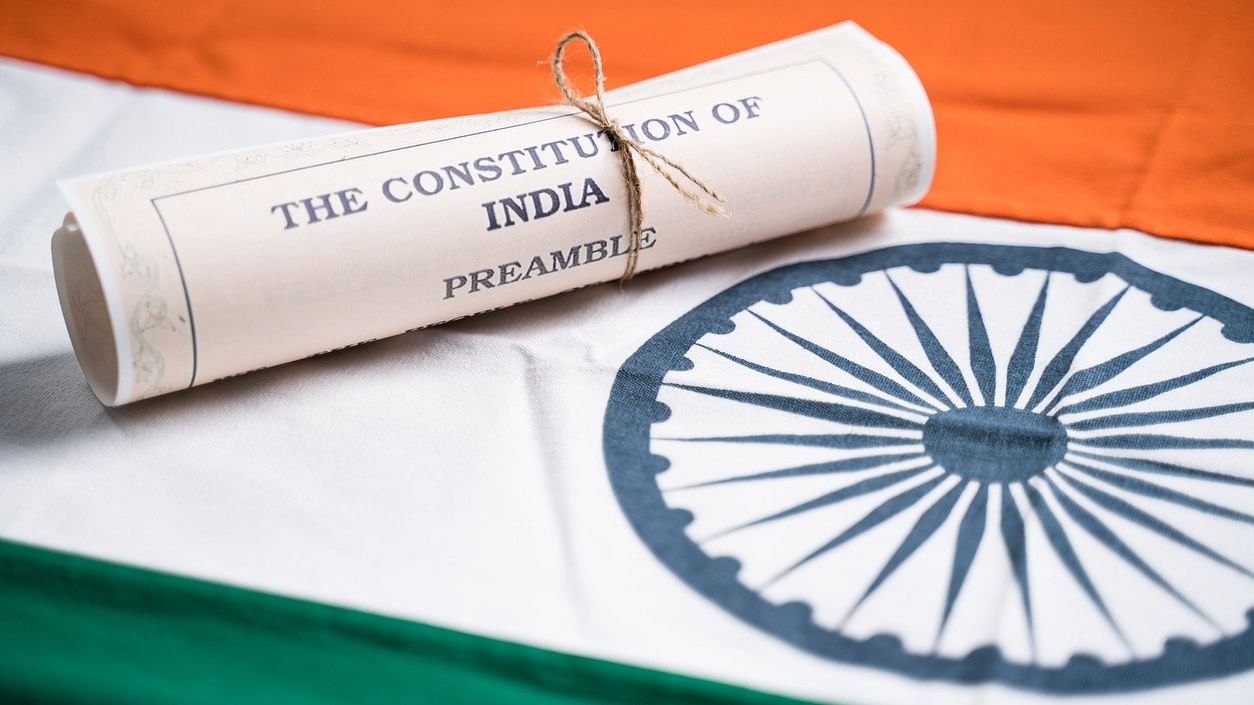
The Constitution of India has envisaged the role of the Governor as custodian of constitutionalism in the respective states; however, owing to the nature of appointment using nominee/selection by the union government, most of the time, the Governors abide by the obligation to the ruling dispensation rather than to the constitutionalism.
Credit: iStock Photo
On November 9, on the eve of the completion of a year in the office as Chief Justice of India, CJI DY Chandrachud, in an interview, mentioned that “we should not reject constitutional morality because it may sometimes be in tension with existing social practices”.
While introducing ‘The Draft Constitution’ to the Constituent Assembly on November 4, 1948, B R Ambedkar highlighted the need to diffuse ‘constitutional morality’ in Indian society. He opined that it is imperative to deepen the democracy, which is only a ‘top-dressing on Indian soil, which is essentially undemocratic’.
The journey of 75 years of constitutionalism in India provides the perfect context to revisit the idea of constitutional morality in the light of the ongoing tussle between the Governors and the elected governments, especially in Kerala, Maharashtra, Punjab, West Bengal and Tamil Nadu.
The Supreme Court has expressed serious concerns about the delays by some of the Governors in assenting to the bills passed by the state legislatures. This violates the constitutional provisions and the doctrine of constitutional morality.
The Constitution of India has envisaged the role of the Governor as custodian of constitutionalism in the respective states; however, owing to the nature of appointment using nominee/selection by the union government, most of the time, the Governors abide by the obligation to the ruling dispensation rather than to the constitutionalism. This has deepened the crisis between the union and state relations by corroding the principle of cooperative federalism. The conduct of Governor/s in these states has resurrected the question of the need to continue the Governor’s office in parliamentary democracy.
The inordinate delay of Governor/s in assenting the bills has become the unwritten rule in some of these states, thereby diminishing the credibility of the institution of the Governor. Misusing the Governor’s office by the union government in power is not entirely new. It has been in practice since 1950. This is true for the largest political alliances of NDA and UPA, led by the Bharatiya Janata Party and Indian National Congress, respectively.
The increased misuse of the Governor’s office by the ruling governments for political reasons is the most destructive pattern in our democracy. The arbitrary use of Article 356 is one of the most commonly used political strategies through the Governor’s office to dismantle the state-elected governments. Only the President of India, upon receiving a report from the Governor, can proclaim an emergency in case of the state’s constitutional machinery failure.
Article 356 (1) of the Constitution of India reads, “If the President, on receipt of a report from the Governor of the State or otherwise, is satisfied that a situation has arisen in which the government of the State cannot be carried on by following the provisions of this Constitution…”
The word “otherwise” in the provision mentioned above is left undefined and gives scope for the use or misuse of the powers by the Constitutional authorities to regulate the states’ acts. The original draft of the Constitution did not contain the word “otherwise”. It is worthwhile to recollect the Constituent Assembly Debates on Article 278 and present Article 356. Article 356 of the Constitution must be seen in conjunction with Articles 352-359 and 360 (financial emergency) and not alone.
The Constituent Assembly was unhappy with this Article, especially H V Kamath, who objected to the word “otherwise” in the provision and moved an amendment to delete the word. He observed that if the amendment was not accepted, “we are laying ourselves open to snare traps in our path wherein we shall be caught beyond any rescue”. The current tactic of delay in assenting the bills/laws passed by the state governments by some Governors is another arm to suppress democracy and the state’s sovereignty.
The fact that there is a conflict between the Governor’s offices and the elected governments is sad. The immediate consequences of this trend are (i) affects public governance and administration (ii) erodes the harmonious relationship between the state and the Governor’s office (iii) destabilises the elected governments as they are under pressure of non-performing governance (iv) corrodes the union-state relations. Overall, the federal scheme of the constitution is in a state of disequilibrium.
Solutions
Given this precarious situation where even the Supreme Court has raised questions on the conduct of Governors in clearing the bills/laws, the following steps are necessary to come out of this governance conundrum.
Firstly, the state government must be consulted before the Governor’s appointment by the union government, as recommended by the Sarkaria Commission. This will ensure the much-needed consultation between the union and state governments, thereby strengthening the relationship between both of these governments in the true spirit of cooperative federalism.
Secondly, the Supreme Court of India must direct the Union Ministry of Law and Justice to frame the guidelines for the Governor’s office, in consultation with the Law Commission of India, to assent to the bills on time to avoid unregulated delays in future. Thirdly, empower the office of the President of India to recall the Governor/s who are the subject of a constitutional violation in discharging the duties as per Article 200.
Lastly, the time has come to remove the word “otherwise” in Article 356 through Constitutional amendment, as Governors have misused the word to dissolve many elected governments in states. This will curtail some of the discretionary powers (different from those accrued under the Fifth and Sixth Schedule of the Constitution) and prevent the misuse of the Governor’s office by the union government in power.
(The author is an independent researcher and writer on governance and development)